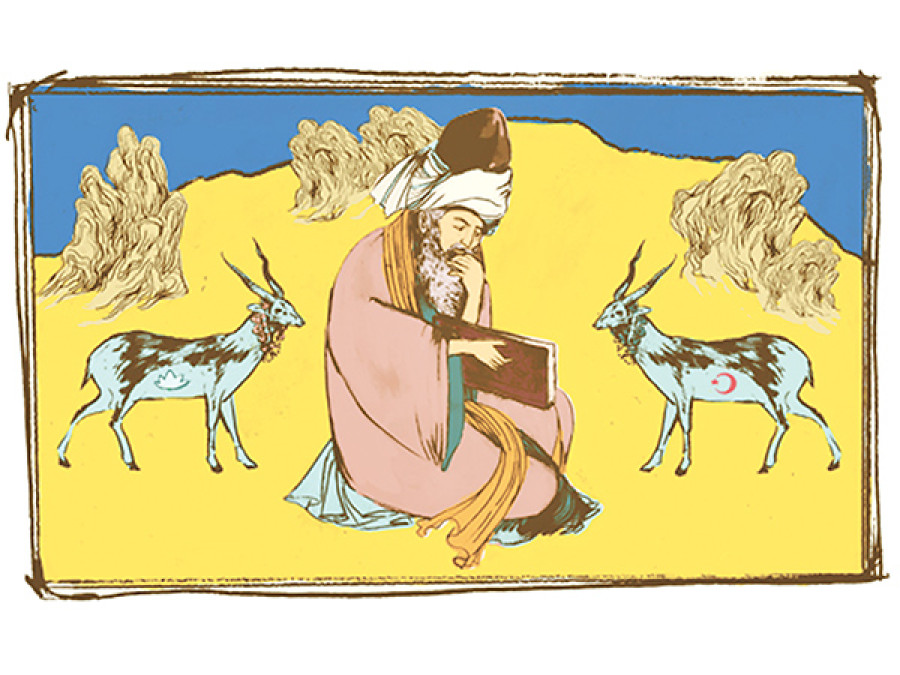Opinion
A world of Sufism
Sufism offers a holistic and collective approach to reducing hatred, violence, and terrorism
Zulfiqar Shah
The world is currently undergoing ‘global anarchy’. Human society is witnessing diversified and multiple forms of chaos in the context of human as well as development insecurity. This phenomena has resulted from the knotty and unsustainable means of strategic manifolds adopted and implemented in the conflict arena during and after the Cold War, especially in today’s transitional period of a multi-polarised global balance of power.
The residue caused by the devastations that took place in the socio-political ecology is known today as religious extremism, through which violence as well as terrorism is caused by outfits claiming to be ‘Islamists’. Global anarchy and chaos in human society no doubt are new themes of our times, which need a broader and more multi-disciplinary academic and analytical discussion. But at least collective human asset in the form of the ‘Sufi’ worldview is available. It offers a holistic and collective approach to detoxifying the residues of hatred, and thereby violence and terrorism in the name of religion.
Blending the essence
There are many definitions and meanings of Sufism in the philosophical and theological dictionaries. We will just look at what Sufism is simply, and what exactly it wants. Sufism is an attempt by the spiritual saints and mystic theosophists to explain the existing sprit of humanity within and in the proximity of a religion or among the religions in a non-theologist, non-structural, or semi-structural way. Thus, it is a spiritual as well as spiritual-cum-theosophist path that has the capacity to heal the wounded, misguided, naïve, and perverted human souls to overcome a tilt towards violence or transform them into entirely new spiritual beings.
Sufism, an oriental term, can briefly be defined as a path to clean the inner being of humans. It has many manifestations, expressions, processes, and practices. If geographically categorised, we can see Hindu Sufism, Western Mysticism, and Judeo-Christian Sufism, Oriental, Islamic, South Asian, Central Asian, East Asian, and Sindhi Sufism.
Western Sufism has a tilt towards existentialism. Judeo-Christian Sufism is tilted towards the dilution of the finite into the infinite through sacrifice. Islamic Sufism has diversified ways to explain and practice Islam in a sublime way through which a general education of love and inter-dependence is spread among believers of the path. Oriental Sufism has the iconic leadership of Jalal ad-Din Rumi; Islamic Sufisim has the iconic manifestation of Mansoor bin Hilaj and South Asian Sufism is deeply rooted into a path starting from the Vedas and culminating in Guru Nanak. Sindhi Sufism has its foundations in the Rig Veda and a modern outlook in the poetic works of Shah Abdul Latif Bhitai, Sachal Sarmast, and Sami.
All these paths and streams within Sufism have one major theme—a balanced and harmonious relationship between and among individual beings, society, and nature, expressed and adopted through spirituality.
Sindhi Sufism is highly peculiar in the broader world of the Sufis. Unlike other streams of Sufism, it mainly attempts to find unity among the diversity of religions. It practices almost all major currents of Sufism into one. A Sufi place in Sindh usually practices Islamic, Hindu, Christian, Judaic, and Buddhist waves of spirituality. This, in theosophy, can only be seen in Baha’ism and its chain of Lotus Temples in the world. Sindhi Sufism has a greater tilt for the existentialist Sufi order, combined with the patriotic Sufi order. A Sindhi Sufi who is patriotic needs to be a global being in terms of spirituality.
Sufism today
Alas, there are few academic and institutional works available on and around Sufisim. The material globalisation of the world today and the interfaith-dialogue in human society would be incomplete if it does not offer a broader cushion to Sufism. Sufis have the true spirit to gradually transform human beings from antagonistic into composite human souls.
Shah is a stateless Sindhi refugee journalist, analyst and activist




 14.24°C Kathmandu
14.24°C Kathmandu











